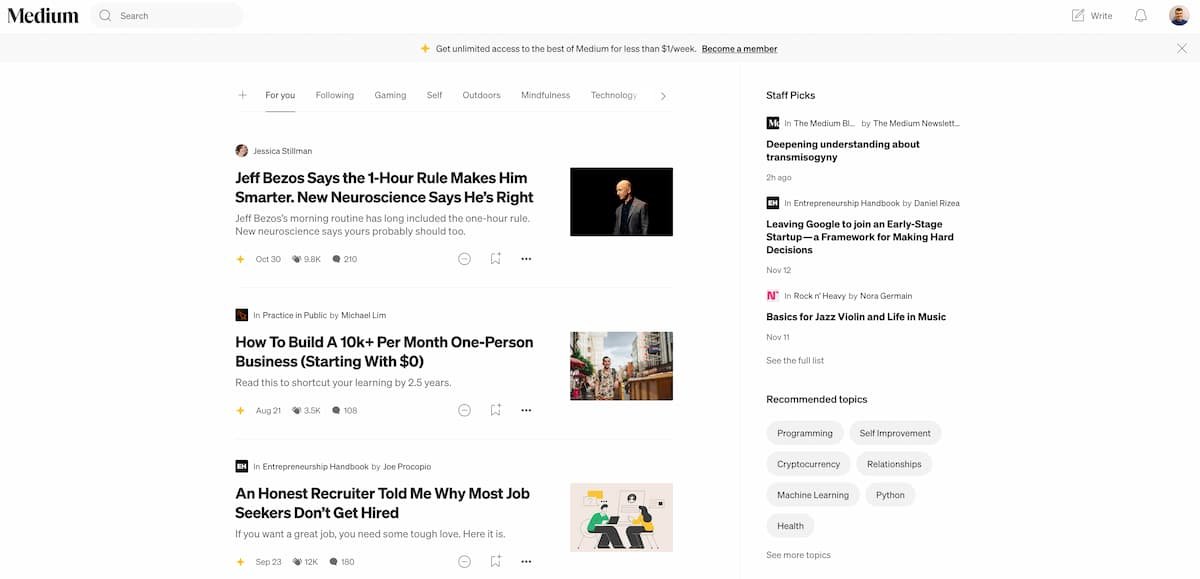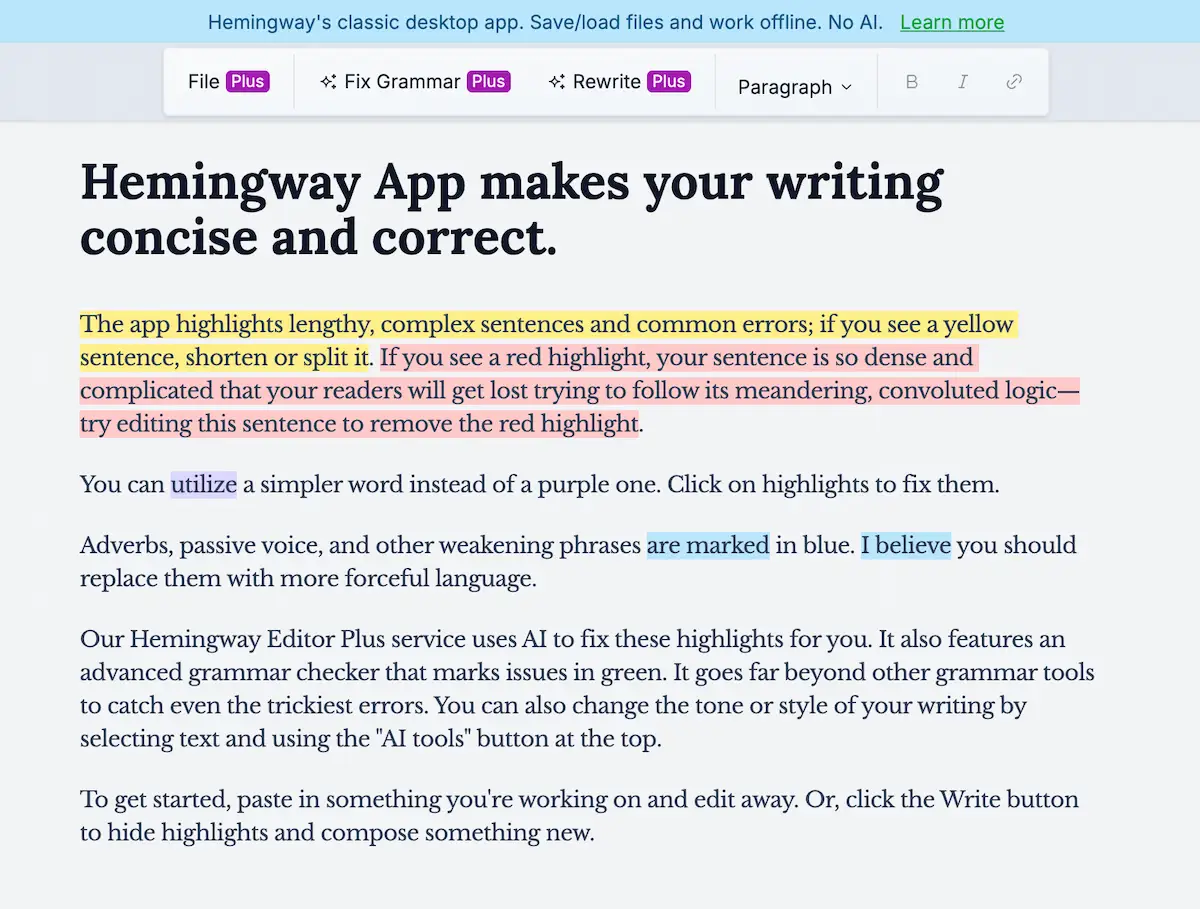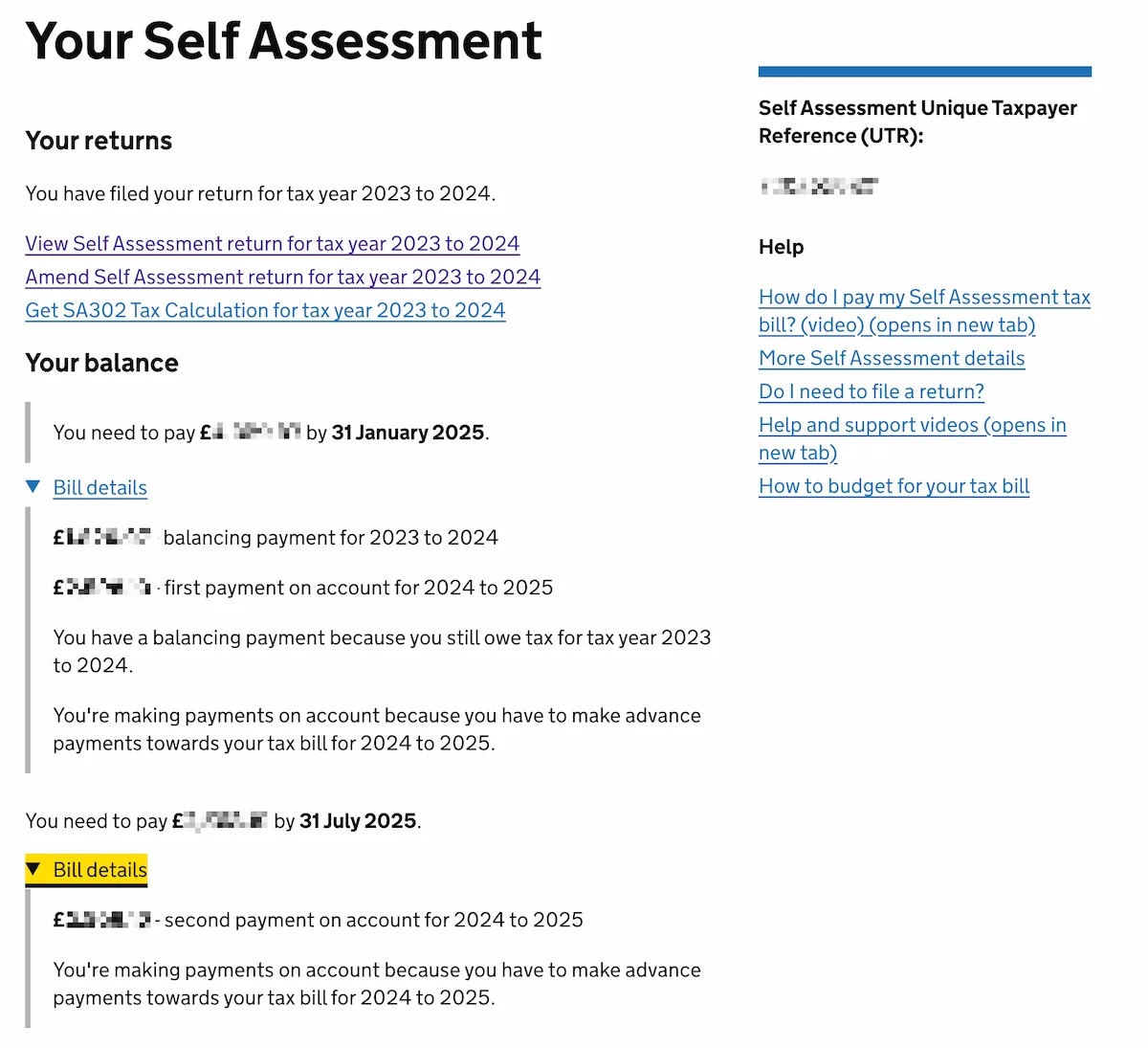Freelance writing can be an invigorating and rewarding career, especially for anyone who always dreamed of being their own boss and not having the usual 9-to-5 job. But there’s a lot more to it than just writing! And not everyone is willing to put in the effort to make their passion for writing into a career.
In this article, I look at whether freelance writing is a good career, discussing what kind of money you can make, and the main pros and cons. First, let’s consider who a freelance writing career might be most suited to, and who might not want to consider this career path.
Who Is A Freelance Writing Career Ideal For?
Freelance writing can be very appealing because of the freedom it offers. It gives people the ability to earn an income while working anywhere in the world, whenever they want. But this doesn’t mean that it suits everyone.
A freelance writing career is ideal if you:
- Enjoy writing and are ideally pretty good at it
- Can proofread and edit your own work
- Enjoy researching topics
- Are willing to learn new skills, style guidelines, and best practices
- Enjoy working on your own, and to your own deadlines (although clients will still set them too!)
- Are willing to market yourself to find clients
- Can afford to go a few months without consistent income (this can vary a lot)
Are You A Good Writer?
It’s an obvious one, but it’s important nonetheless. You need to have solid writing skills to make it as a freelance writer. I’ve always been fairly good at writing, not necessarily the best in the world.
But I started my freelance writing career with a solid foundation. From there, I’ve improved over time, picking up new skills and adapting to new client guidelines (being willing to learn new skills is a key aspect of becoming a successful freelance writer).
I learned a lot from following top writers on social media, along with platforms like Medium.

There are lots of different style of writing, from content writing and copywriting to creating long-form pieces like ebooks and whitepapers. You don’t need to be great at them all to make it as a freelance writer, but you need to have a strong starting point you can build from.
On top of that, you need to enjoy writing too! Otherwise it’ll be a dire career choice, so really consider whether writing is something you are both good at and enjoy.
It’s About More Than Just Writing
Aside from writing, you also need to be able to edit and proofread your own work. This will be expected of you from clients, and while they might have their own editing teams, you don’t want to make their life more difficult than it needs to be. Learn to properly edit your own content and go beyond just using Word’s spell checker.
Tip: One great free tool for getting to grips with editing your own writing is Hemingway.

You can use other tools like Grammarly, but really you should get solid editing skills down yourself so you aren’t relying on tools that might get things wrong or not understand the nuance of the piece you’re writing.
Further reading: If you find you enjoy the proofreading aspect, read our guide to becoming a freelance editor.
But before you even start writing, you need to be able to research and plan. Perhaps you’ve been hired by a client for your expertise in a particular niche. Even if that’s the case, you’ll still need to be able to do solid research and plan whatever it is you’re writing.
There will inevitably be times you need to find stats for the article or learn more about a complex topic, so get comfortable researching!
Working On Your Own
Working remotely is no longer something new and scary for a lot of the world. But working on your own can still be a big shock to the system.
As a freelance writer, you’ll have contact with clients of course, but you won’t have colleagues to bounce things off. This can be very isolating, and it’s one of the hidden downsides of freelance writing as a career.
But if you enjoy going solo and working to your own schedules, it can be an incredibly rewarding career choice. I personally love working both alone and as part of a wider team. This makes for a great balance when I’m working with some clients that are very hands off, while others like to maintain a more regular line of communication.
Running Your Freelance Writing Business
As a freelancer, you’re responsible for running your own business. So, you need business skills in addition to your writing skills. This includes the ability to market yourself, pitch to new clients, and negotiate rates.
You’ll also need to manage your finances, pay taxes, and do various other things you might not have to do in a traditional job.

Dealing With Inconsistent Income
Finally, an important aspect of any freelancing career is the inconsistency of the income you can expect to earn. There’s no denying that going freelance can lead to more money than you might get in a normal job, but that’s not a guarantee. Plus, the first few weeks, months, or even years can be like a rollercoaster ride with more downs than ups.
This is something you need to prepare for if you want to make freelance writing a sustainable career. I took several months to get consistent clients to the point that I could comfortably call freelance writing a career choice!
Ultimately, if you have a passion for writing and you’re willing to grow and learn, you’ll be able to acquire new skills and improve your existing ones. This will help you succeed as a freelance writer. But what are some reasons you shouldn’t consider a career as a freelance writer?
6 Reasons You Should Not Become A Freelance Writer
1. You Think It’s An Easy Way To Make Money
Many people enter the world of freelance writing underestimating the effort required to secure consistent work and manage fluctuating income. Freelance writing isn’t just about having a way with words—it’s about finding clients, meeting varying demands, and often dealing with tight deadlines.
Establishing a steady stream of income takes time and involves facing rejections and learning from them. You need to understand market demands, develop a unique voice, and continuously improve your craft. Freelance writing requires a significant investment of time, energy, and patience before it becomes financially rewarding.
Tl;dr: It’s NOT a get-rich-quick scheme. It IS a career choice.
2. You Have Too Many Other Commitments
Because freelancing requires a substantial commitment of time and energy, it can be challenging to balance with other responsibilities like a full-time job, education, or family obligations. The need to consistently produce high-quality content, meet deadlines, and find new clients can become unmanageable if your schedule is already packed.
Juggling freelance writing with other major commitments can also hinder your ability to give your best to each task. It often leads to reduced productivity and quality in both your writing and other areas of your life. This imbalance can result in dissatisfaction and a feeling of being perpetually behind schedule.
(Or it could just lead to you struggling to make enough quality time for those around you.)
Note: An example of those who might not be suited to freelance writing for this reason are students. Balancing your work with your studies can be a tough task (Editor’s note: I know, because I started freelance writing when I was a student!). You can learn more about doing this in our guide to freelance writing as a student.
3. You Don’t Want To Sell Yourself
A significant aspect of freelance writing is the constant need to market yourself and your skills. If you’re uncomfortable with self-promotion, freelance writing is going to be a tough career. You must actively seek out clients, pitch your services, and network extensively.
This often means stepping out of your comfort zone to build professional relationships and showcase your abilities.
In a market filled with skilled writers, standing out from the crowd often depends on your ability to effectively communicate your unique value proposition to potential clients. In other words, you need to be able to explain to potential clients why they should choose you!
4. You Don’t Have Any Savings
This is linked to a point I made earlier. The irregularity of freelancing income, especially in the initial stages, makes savings an essential safety net. Without this financial backup, periods of little work can be both stressful and financially harmful. Savings provide a buffer that lets you focus on building your portfolio and client base without the immediate pressure of generating a substantial income.
I strongly recommend avoiding freelance writing as a career if you don’t have some form of safety net set up beforehand. If you go in with no buffer, it’s going to be incredibly risky!
5. You Don’t Like Working Alone
This is another one that’s tied to a point I discussed above. Freelance writing often means working independently for extended periods. The absence of colleagues and the lack of a traditional work community can lead to feelings of loneliness and disconnection.
The lack of direct supervision and team dynamics means you also need to be highly motivated with a lot of self-discipline. If you prefer a structured environment with team interactions, freelance writing may not align well with your working style. This might impact your productivity and how much you enjoy what you do day in, day out.
6. You Struggle To Stay Focused
Finally, leading on from the previous point, freelance writing demands a high level of self-discipline and focus, particularly in managing your schedule and adhering to deadlines. If you find it difficult to stay focused without direct supervision, it’s going to be tough to make freelance writing a sustainable career.
Distractions can be a major obstacle in maintaining productivity as a freelancer. Without the structured environment of an office, staying on task requires considerable self-control. If you struggle with procrastination or are easily distracted, the lack of external accountability in freelance writing might lead to low-quality work and a tough time overall.
If you still think freelance writing is the right career for you (and it definitely could be!), then let’s now discuss how much money you can make to see if it’s worth pursuing.
Can You Make A Living As A Freelance Writer?
You definitely can make a living as a freelance writer, as millions of people do so all around the world every single year.
But how much money freelance writers earn varies from person to person and depends on several factors. In the beginning, as you’re building your experience and portfolio, you might need to accept gigs that don’t pay much. However, the more work you do, and the more value you can provide, the more clients will be willing to pay for your expertise.
For example, a freelance writer in the early stages of their career might charge $0.05 per word. They might be able to write and edit a 1500-word article in about 2 hours (this will vary a lot of course). That leads to an hourly rate of around $37.50.
If they commit to 10 articles every week (which is not an insignificant amount of writing), that makes a total of around $750 per week. If you factored in 4 weeks off per year, you could make about $36,000 at this rate. It’s not necessarily massive money, but it’s not terrible either.
You Can Earn Much More
It’s also possible to make double or triple that or more, as I know many freelance writers that earn $0.20 per word, and some niches even pay $0.50-$1.00/word. In fact, you’ll see many websites and forum entries out there recommending you don’t take on jobs that pay less than this!
But the reality for beginners is that unless you have very specific expertise and skills, you’ll need to accept lower rates for a while. (But obviously not so low that you’re struggling to survive!).
You also need to find enough work to write those 10 articles each week at those rates. This gets easier when you build strong relationships with clients. But in the beginning, it can be tough to get consistent work. That’s why it’s important to be patient and dedicated to the long-term goal.
Further reading: How To Find Beginner Freelance Writing Jobs (No Experience)
The Pros & Cons Of A Freelance Writing Career
| Pros | Cons |
|---|---|
| Flexible schedule | Irregular income |
| Freedom to choose clients and projects | Need for self-motivation and discipline |
| Opportunity to work from anywhere | Lack of benefits (health insurance, paid leave etc) |
| Control over workload and pace | Isolation and lack of social interaction |
| Potential for higher earnings | Unpredictable work flow |
| Skill development and diverse experiences | Responsibility for all business aspects (taxes, marketing etc) |
AI & The Future Of Freelance Writing
Before I wrap up this article, let’s briefly address the elephant in the room—artificial intelligence. AI has long been dubbed a threat to many jobs, but the tail end of 2022 saw a new threat appear for writers in particular: ChatGPT, and the myriad writing tools based on it.
Will freelance writing continue to be a viable career choice in the era of AI chatbots?
I think yes, as the need for high-quality writing is perhaps even stronger now, and the focus will shift to real human experience and expertise. AI simply cannot replicate human experience or specialized knowledge at the level that a top human writer can.
However, there’s no doubt that chatbots like ChatGPT are very good at creating fairly basic content at scale. This does threaten the section of the market that relies on generalist writing to survive. Many businesses see the cost savings these AI tools offer and don’t mind the fact that the quality suffers. Or they put the money towards freelance editors instead (perhaps that could be a wise career choice instead?).
Obviously the future of freelance writing is uncertain. But I think for those with the right skills and a willingness to produce above-average content, you’ll definitely be able to carve a career in freelance writing even in the age of AI.
Is Being A Freelance Writer Worth It?
Freelance writing can be a great career choice for some, but it’s not suitable for everyone. If you have a passion for writing, the ability to stay organized and focused, and are willing to grow and improve, then you might just have what it takes to make it!
Freelance writing can be a demanding job at first because it requires a lot of effort and work. But with time, and as you become a better writer, you can charge more, attract more clients, and achieve the results you’re striving for.
For more beginner guidance, check out our article on tips for beginner freelance writers.
Freelance Ready is reader-supported. That means some links on this website are affiliate links. If you sign up or make a purchase through these links, we may earn a commission.

